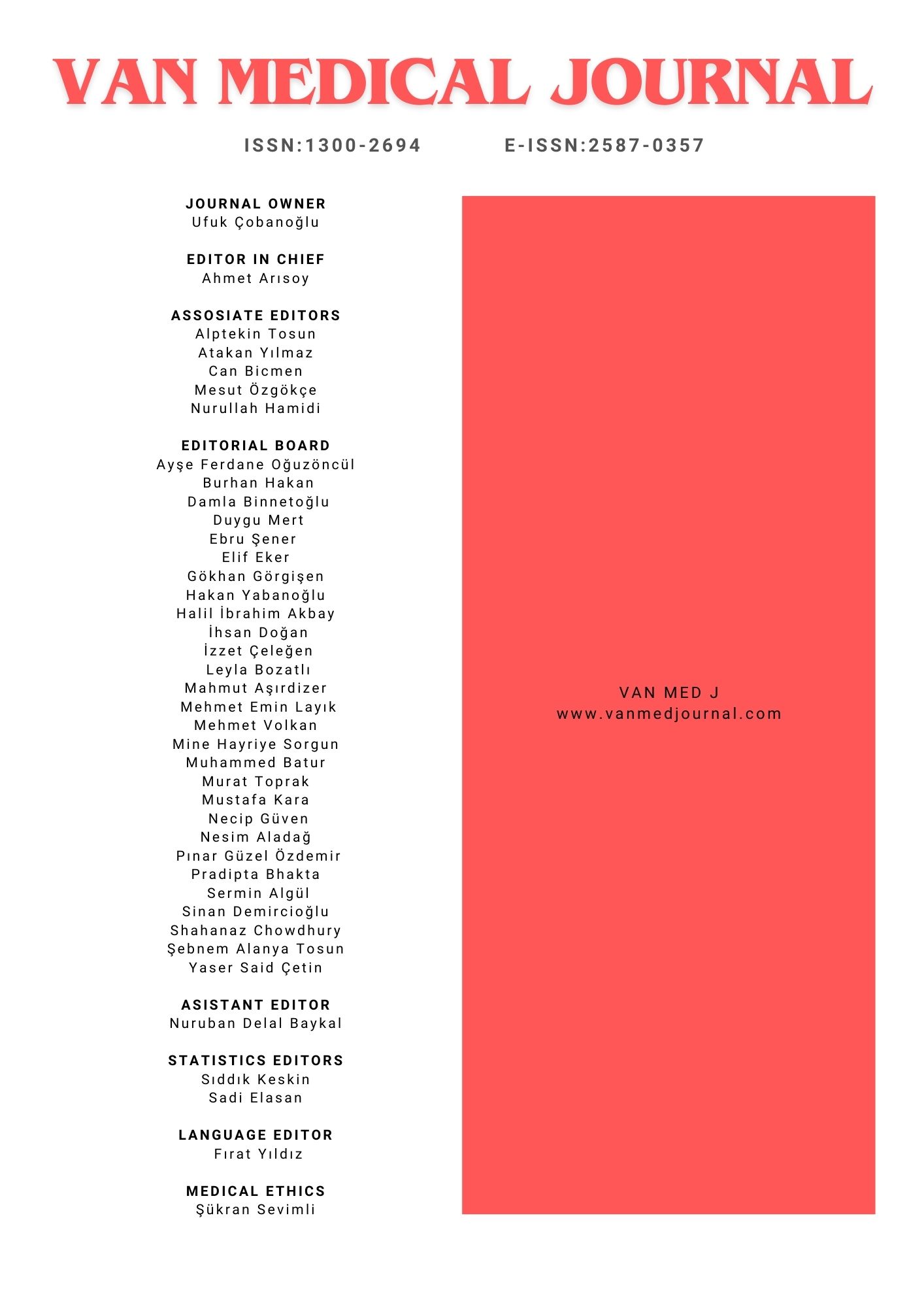The comparison of pulmonary functions After the bariatric surgery In Morbid obeses Versus Super Obeses
Burcu Yormaz1, Ilhan Ece2, Bayram Çolak2, Serdar Yormaz2, Hilmi Demirkıran31Selcuk University Medicine Faculty,Department of Chest Disease,Konya,Turkey2Selcuk University Medicine Faculty,Department of Surgery,Konya,Turkey
3Yuzuncu Yıl University Faculty of Medicine, Department of Anesthesiology and Reanimation. Van, Turkey
INTRODUCTION: Nowadays, the incidence of morbid obesity is one of the most common health problems in the world. Bariatric surgery is a procedure that lose excess weight, to heal comorbidities and to improve pulmonary functions in obeses. Laparoscopic sleeve gastrectomy is a bariatric procedure with succeed positive results for bariatric patients. Our aim was to compare postoperative respiratory outcomes in morbidly obese patients who have underwent Laparoscopic sleeve gastrectomy.
METHODS: Consecutive 124 morbid obese patients who were underwent Laparoscopic sleeve gastrectomy were evaluated between the years of march 2014 to july 2016. Patients were divided into two groups A and B. Group A patients who have BMI between 40-45kg/m2 and group B patients who have BMI between 45-50kg/m2. FEV1, FVC, FEV1/FVC, MSV, DV/VO2, DV/VCO2, VO2peak results, body mass index, postoperative oxygen saturation and comorbidites, were compared between both groups. Student's t test,chi-square test was used for the variables and homogeneity in the patient group.
RESULTS: The mean age values, respiratory function values in both groups were similar in preoperatively. In our postoperative results, there was a significant difference in the FEV1, FVC, FEV1/FVC, MSV, DV/VO2, DV/VCO2, VO2 peak ratios and also identified significant difference in resolution and improvement of comorbidities.
DISCUSSION AND CONCLUSION: The results of the patients who underwent bariatric surgery and whose body mass index (BMI) was 40-45kg / m2 were statistically significant compared to other group. The improvement in pulmonary functions and the effect of correction of comorbidities are higher in the morbidly obese group with laparoscopic sleeve gastrectomy.
Bariatrik cerrahi sonrasında morbid obez ve süper obezlerdeki pulmoner fonksiyonların karşılaştırılması
Burcu Yormaz1, Ilhan Ece2, Bayram Çolak2, Serdar Yormaz2, Hilmi Demirkıran31Selçuk Üniversitesi Tıp Fakültesi,Göğüs Hastalıkları AD.,Konya,Türkiye2Selçuk Üniversitesi Tıp Fakültesi,Genel Cerrahi AD.,Konya,Türkiye
3Yüzüncü Yıl Üniversitesi Tıp Fakültesi Anesteziyoloji ve Reanimasyon AD. Van, Türkiye
GİRİŞ ve AMAÇ: Günümüzde morbid obezitenin dünyadaki en yaygın sağlık problemlerinden biridir. Bariatrik cerrahi obezlerde fazla kiloları verebilmek, komorbiditeleri iyileştirmek ve pulmoner fonksiyonları iyileştirebilmek için uygulanan bir prosedürdür. Laparoskopik sleeve gastrektomi bariatrik bir işlem olup, bu prosedürden sonra olumlu sonuçlar alınmaktadır. Bu çalışmadaki amacımız LSG uygulanan morbid obez hastalardaki postoperatif pulmoner sonuçları karşılaştırmaktı.
YÖNTEM ve GEREÇLER: 2014 mart ile 2016 temmuz yılları arasında LSG uygulanan 124 morbid obez hasta postoperatif dönemde olarak değerlendirildi. Hastalar grup A, vücut kitle indeksi (VKİ) 40-45kg/m2 ve B, vücut kitle indeksi 45-50kg/m2 arası olanlar olmak üzere iki gruba ayrıldı. İki gruptaki hastalar FEV1, FVC, FEV1/FVC, MSV, DV/VO2, DV/VCO2, VO2pik değerleri, vücut kitle indeksleri, yaş, cinsiyet ve komorbiditeler açısından kıyaslandı. Hasta gruplarındaki değişkenler student t testi ile homojenlik testi ise ki -kare testi le değerlendirildi. Gruplar arası preoperatif ve postoperatif değerler de student t testi ile karşılaştırıldı. İstatistiksel olarak anlamlılık seviyesi p < 0.05 olarak kabul edildi.
BULGULAR: Her iki grubun preoperatif dönemdeki demografik verileri yaş ortalamaları ve pulmoner fonksiyon değerleri arasında istatistiksel olarak fark yoktu (p>0.05). Postoperatif dönemdeki grup içi ve gruplar arası sonuçlarımızdan ise FEV1, FVC, FEV1/FVC, MSV, DV/VO2, DV/VCO2, VO2pik oranlarında anlamlı bir farklılık saptanmanın yanısıra komorbiditelerde iyileşme ve azalma oranlarında iki gruptan VKİ si düşük olan gruptaki sonuçlar diğerine göre anlamlı oranda farklıydı.
TARTIŞMA ve SONUÇ: Bariatrik cerrahi uygulanan vücut kitle indeksi (VKİ) 40-45kg/m2 olan hastaların operasyon sonrası sonuçları diğer gruba göre istatistiksel olarak anlamlıdır. Pulmoner fonksiyonları iyileştirme ve komorbiditeleri düzeltme etkisi LSG geçiren morbid obez grupta daha yüksektir.
Manuscript Language: Turkish

